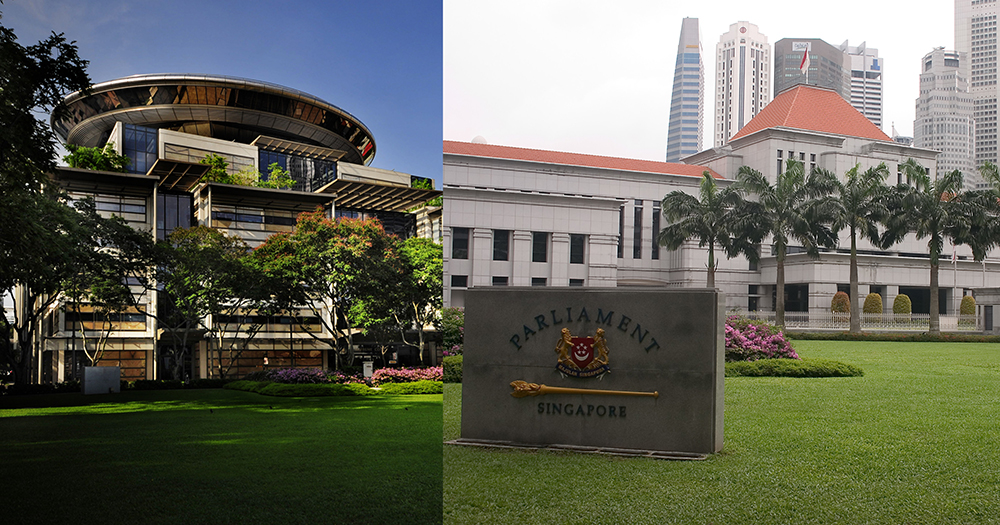By Cherian George
One of the main doubts swirling around the proposed online falsehoods law is whether a government will get to apply the Humpty Dumpty principle — words will mean whatever the government chooses them to mean.
No less a legal authority than the dean of the Singapore Management University (SMU) law school has declared that it is "entirely untrue" to say that the ministers are the final arbiters of truth under the Protection from Online Falsehoods and Manipulation Bill.
Dean Goh Yihan went so far as to say that this concern is “fake news” and “it distorts our debate on an important piece of legislation”.
Nevertheless, I hope he and other learned jurists will humour laypersons like me and address the Bill’s more confounding intricacies.
Appeals must go through minister who ordered take-down before being allowed to go to court
It is clear that any prosecution under Clause 7 of the Act would be judged by the courts, not ministers. Clause 7 makes it a criminal offence, punishable by fines and imprisonment, to communicate harmful falsehoods deliberately.
The Bill seems to permit a minister to keep the courts out of the picture for a substantial period. This is because an appellant must first go through him. Under Clause 17(2), it is only after the minister has turned down the applicant that an appeal can be made to the High Court.
And, under Clauses 17(6) and 19(3), the order remains binding while the outcomes of appeals are pending. Choosing to ignore the order while waiting for your appeal to be decided is a crime, for which an individual can be punished, under Clause 15(1), with up to a year in jail and a S$20,000 fine.
Significantly, the Bill does not give the minister a deadline for responding to an appeal.
A minister trying to suppress articles about a scandal that could hurt his election prospects, for example, could defer decisions on appeals until the controversy has died down, or after the election has passed, making the articles impotent.
A large proportion of news has a short shelf life. It is called “current” affairs for a reason.
To say that ministers will permit the courts to be the ultimate arbiters of truth in the long term may satisfy the historian, but it is of no comfort to citizens concerned about the here and now.
An entire article can be ordered to be taken down for a single error in it
Even after an appeal reaches the court, the Bill explicitly circumscribes the judge’s role.
Yes, the judge can review whether the disputed article is true or untrue. If she finds that the statement is true, she can overturn the correction or take-down order. She can also set aside the minister’s order if she finds that the statement is a comment and not a statement of fact.
But there is a catch.
Under Clause 2(2), a statement is deemed false even if only a portion of it is false or misleading. This means that the targeted media could be caught out on a technicality. The minister can order the entire article — even if it is a comment piece — taken down for a single, immaterial factual error.
 Source: Christoph Scholz via Flickr
Source: Christoph Scholz via Flickr
We need to be serious about giving judges the final say
The question is what a judge can do in this situation. If she goes strictly by the book, she might conclude that her hands are tied.
The Bill enumerates three grounds on which the court can set aside the take-down order. I have already mentioned the second one on the list:
(b) where there’s no false statement of fact.
The other two possible grounds are:
(a) the article did not reach Singapore; or
(c) compliance is technically impossible.
Even if none of these three conditions apply, the judge may quite legitimately feel that the government’s action is
(d) grossly disproportionate, since an isolated factual error does not merit a take-down order.
She may also feel that
(e) the minister’s order, all things considered, did not serve the public interest.
The problem is that the Bill specifies (a), (b), and (c) as the “only” three grounds on which she can set aside the order.
In countries with a strong constitutional tradition, judges look beyond what is explicitly stated in a statute. Citizens can count on the court to weigh competing rights and interests in a balancing exercise.
In Singapore, however, the courts will not lightly interfere with the executive’s assessment of what the public interest requires. So-called “judicial activism” is frowned upon.
Therefore, if we are serious about giving judges the final say, the Bill must be revised to guarantee them a meaningful role in reviewing the government’s orders.
There should be strict deadlines set for ministers to review appeals
First, the Bill must set a strict deadline for ministers to respond to appeals. Senior Minister of State (Law and Health) Edwin Tong has said that should an appeal go to court, he did not foresee a “complicated two-week trial”.
It stands to reason that a minister should not need a long time to review an appeal either. We are dealing with news and current affairs, and on matters that the government says are quite clearcut.
A time limit of 24 to 48 hours should be plenty. If he cannot decide by then, he should stand aside and leave it up to the courts, which the government agrees is the proper forum. The court itself should set up a fast-track procedure for handling time-sensitive appeals.
Court must be allowed to review the minister's opinion
Second, the language of the law must give judges more discretion. The court must be allowed (indeed, required) to review the minister’s opinion that the correction or take-down is in the public interest.
In making this assessment, the court should be required to consider how material any factual inaccuracy is to the content as a whole, and the likelihood and seriousness of any arising harm. The court must be given the option of modifying the order, or converting it from a take-down to a correction order.
This check and balance is especially important because the Bill gives an extraordinary degree of discretion to individual ministers. In other Singapore media laws, it is only a specified overseeing minister (usually the information minister) who can exercise executive functions.
A transport minister, for example, cannot unilaterally gazette a publication or website that has been giving him sleepless nights. He must persuade cabinet colleagues that his preferred course of action is not an overreaction, and that it would not embarrass the government.
Such a process, which could have a moderating influence, is not formalised in the Bill: any minister can order a correction or take-down directive.
Regulator overseeing this should not be beholden to ministers or political leadership
Furthermore, the Bill does not provide for an independent, professional regulatory authority. This deviates from international best practice. If you must have the state regulating media, the regulator should be insulated as much as possible from the whims of political leaders.
Of course, in Singapore, it is probably the rare regulatory agency chief executive officer (CEO) who would push back against his supervising minister’s unreasonable demands. But it is usually political culture that generates such cowardice, not the law.
In this Bill, in contrast, even a CEO with spine would have to kowtow. Under Clause 6(2), the new regulator “must” implement the instructions of “any” minister. The specialised regulator does not even hear appeals — Clause 17(2) of the Bill gives that job to the minister who initiated the order.
If that is the amount of discretion the executive branch desires internally, it is all the more important that the judiciary be required to exercise a strong external check and balance role.
The tenor of the SMU law dean’s remarks demonstrates the risks we face. He has labelled warnings about executive overreach “fake news”. He may have been joking, and even if he was not, they are only words.
The problem is that politicians have been known to level similar charges against legitimate criticism about their work. The proposed legislation, if not amended, will give them not just words but also new sticks and stones to fling at critics.
Cherian George is Professor of Media Studies at Hong Kong Baptist University. He contributed to the hearings of the Select Committee on Deliberate Online Falsehoods.
Read more about the draft legislation here:
Top image left photo by Alphis Tay via Flickr, right photo by Jimmy Harris via Flickr
If you like what you read, follow us on Facebook, Instagram, Twitter and Telegram to get the latest updates.
